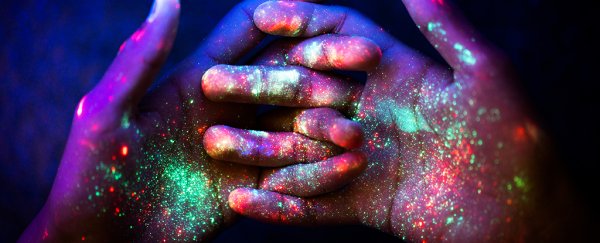A growing body of drug research has shown that experiences with psychedelic drugs can be both positive and negative – scary and uncomfortable for some, but leading to improvements in well-being and relationships for others. These substances also show promising early results for treating mental disorders, in controlled doses.
So why the disparity between the good and the bad experiences? A team of researchers questioning 288 individuals on their experiences with psychedelics has found that having a mystical or religious experience on drugs might play an important role.
The study plugs some gaps in our knowledge about how drugs such as LSD and psilocybin induce religious-style experiences, and could tell us more about how to use these substances in treatments.
It also shows that drug highs and spiritual highs can produce the same sort of feelings and moods in people.
"Even when taken for the first time, psychedelics may occasion powerful subjective experiences that share many features with those described by mystics, dedicated meditators, and religious practitioners," psychologist Samuli Kangaslampi from Tampere University in Finland told PsyPost.
"Some research is beginning to demonstrate that undergoing a mystical-type experience may be linked to improved relationships with self, others, and the natural environment later on."
The study made use of a Finnish translation of the 30-question Revised Mystical Experiences Questionnaire (MEQ30), which asks volunteers to try to quantify some of the feelings and sensations they've had while on psychedelics.
The team assessed different ways of translating MEQ30 to find the most reliable method for accurately reflecting volunteers' experiences. They then went on to exploring the link between the psychedelic and the spiritual.
Those people who scored highly on the MEQ30 were more likely to describe their experience as mystical, spiritual, or religious, and more personally significant.
These feelings might include an increased awareness of an inner world, for example, or getting the impression of transcending time and space. This scientific validation opens up more areas for future research, including the lasting effects of these drugs.
"Those with full mystical experiences reported more positive changes in all areas surveyed, as compared with those without such an experience," the researchers write in their paper.
For future studies, the team is interested in looking at how mystical-type experiences brought on by psychedelics might differ between different cultures and contexts, which is why the translation of the MEQ30 is important.
There are some limitations to note: the study participants were self-reporting on their experiences, which can lead to inaccuracies and misremembering. What's more, in some cases the experiences were quite some time ago.
Nevertheless, the researchers suggest that their findings are enough to show links between having a mystical or religious experience on psychedelic drugs, and that experience turning out to be positive in the long term – and that gives medical professionals something to work with in future treatments too.
"Providing a setting conducive to such experiences, whether described as mystical, peak, or emotional breakthrough, is also likely to be of benefit in clinical applications of psychedelics," say the researchers in their published paper.
The research has been published in the Journal of Psychoactive Drugs.
